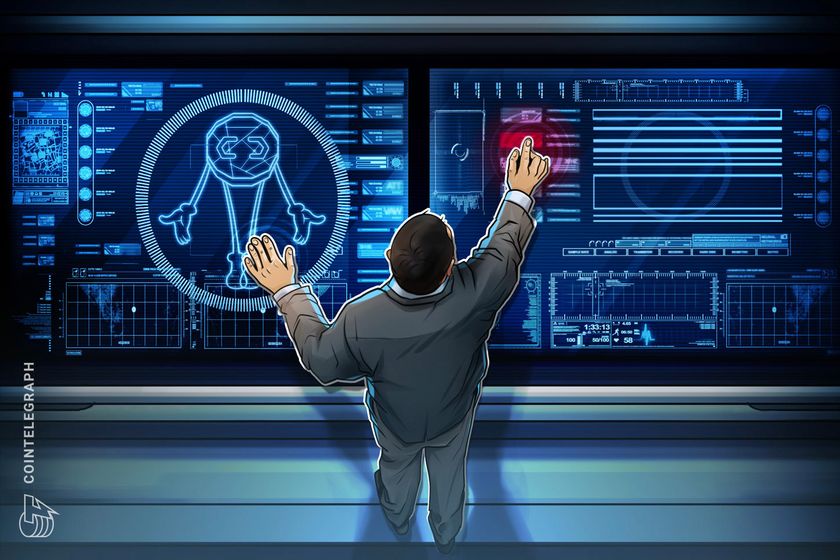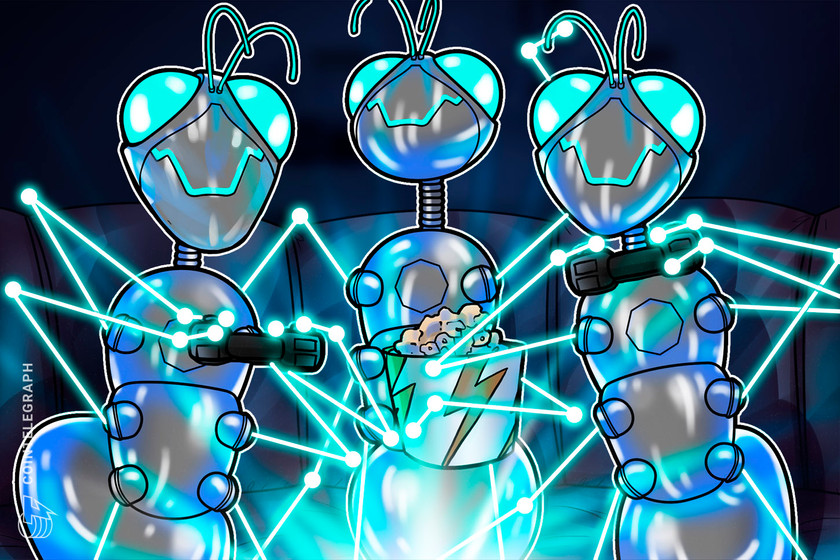
Just a few months ago, it was thinking about issuing a stablecoin. Now, it's unsustainable.
Japan’s DMM Crypto is discontinuing its Seamoon Protocol. No new services will be added to the ecosystem, and the fate of existing services on the platform is under discussion, the company announced.
The Seamoon Protocol was powered by the SMP token in the DM2 Verse on the Oasys layer-2 blockchain. The Seamoon Portal was a Web3 gaming and content site that featured games and anime produced by Japanese e-commerce and internet group DMM.com.
In August, DMM Crypto was working with stablecoin platform Progmat to issue its own stablecoin for use alongside fiat and credit cards to enhance the financial prospects of the ecosystem. However, according to a translation of a DMM Crypto statement published by Japan finance blogger Norbert Gehrke:

Big gaming firms are working to spur mainstream blockchain gaming adoption, and don’t want to “change that policy” even if it causes pushback from some.
Japanese gaming giants are positioning for mainstream blockchain game adoption, and will not be swayed by the section of gamers that are against crypto and nonfungible tokens (NFTs), an exec from the Oasys blockchain project told Cointelegraph.
Speaking to Cointelegraph at the 2022 Tokyo Games Show last week, Oasys Representative Director Ryo Matsubara emphasized that the project’s big-name partners such as Bandai Namco, Sega and Square Enix are not just jumping on the crypto bandwagon —there's a long-term vision for blockchain-based Play-to-Earn (P2E) gaming:
"We have a shared vision about blockchain at the executive level. They don't [want to] change that policy. They really understand the future adoption of blockchain. They're not thinking about, you know, just the revenue, they want to create the next future [of gaming].”
Bandai Namco has developed beloved titles such as Tekken and Pac-Man, Sega’s most famous title is generally seen as Sonic the Hedgehog, while Square Enix is the developer of the widely popular Final Fantasy franchise.
Questioned whether these companies are looking to integrate blockchain tech with their current gaming franchises, Matsubara suggested that they are initially looking at developing brand new blockchain games instead.
He noted that as this is a completely “new model” of gaming, it needs more time to mature before these big companies will look at broader blockchain integrations with traditional games.
“When the model is fixed, becomes sustainable and successful, then strong [popular] IP will be added,” he said.
Looking at what needs to be improved in blockchain gaming, Matsubara noted that a “big problem” so far is that many projects are too dependent on the price of in-game tokens. As a result, there is more demand for “speculation” rather than the gameplay itself.
He went on to note that there will be an “adjustment” over time as projects work to develop genuine hype for the games themselves, most likely by improving the overall gaming experience.
Related: Japanese gov't issues NFTs to reward local authorities' work
This echoed similar sentiments to the lead community manager at Australia-based game developer and Animoca Brands subsidiary Blowfish Studios Luke Sillay, who was also at the event.
During an interview with Cointelegraph, Sillay emphasized that more people want games that are actually “fun to play” rather than just a hustle to earn tokens.
Oasys’ proof-of-stake blockchain is geared directly towards gaming and is tentatively set for an official mainnet launch in the remaining months of this year. Matsubara also hinted that games from its big-name partners will likely be announced next year.
Looking outside Japan, major western gaming companies such as Fortnite developers Epic Games have increased exposure to blockchain gaming of late. Last week the Epic Games store listed a new free-to-play NFT game called Blankos Block Party by Mythical Games.
The move follows comments from Epic Games CEO Tim Sweeney in July, in which he stated that his company “definitely” wouldn’t follow Microsoft’s Minecraft in banning NFT integrations in games.

As part of the deal, Square Enix will develop games on Oasys’ PoS network, joining the likes of Sega, Double Jump, Bandai Namco and Ubisoft.
Square Enix, the Japanese game developer behind the beloved Final Fantasy franchise has signed on as a node validator for blockchain gaming project Oasys, with the duo also teaming up to create blockchain games.
The move has predictably been met with criticism from some crypto and NFT hating members of the gaming community, irritated that the firm is continuing to double down its focus on blockchain tech.
In a Sept. 12 announcement, Oasys revealed that Square Enix had jumped on board to be the project’s 21st node validator, taking up the final slot of initial validators.
Moving forward the duo will also team up to develop new games on Oasys’ EVM compatible Proof-of-Stake (PoS) blockchain, which hopes to become a hub for Triple A quality games with Play-to-Earn (P2E) integrations.
Square Enix joins a host of big names in gaming to partner with Oasys such as Sega, Double Jump, Bandai Namco and Ubisoft — with the latter also having a troubled history with gamers who have pushed back against the firm’s NFT gaming initiative Quartz.
In 2022, Square Enix has done irreparable damage to its image by
— Bruh Momento (@JBoop_is_ballin) September 12, 2022
- Investing in crypto
- No longer prioritizing “fun” in gaming
- Selling off all their western studios
I’d call it self sabotage, but compared to what’s happened to Warner Bros this year, it’s honestly nothing https://t.co/TD8d1O1nj9
While the prospect of having reputable gaming giants jumping behind a blockchain project is welcome news in the blockchain world, the traditional gaming community has not received Square Enix’s move well.
The Gamer reported the news, with the headline: “Square Enix Sets Its Dreaded NFT Plans In Motion By Partnering With Crypto Company.”

“Unlike most video game developers who decided to announce their ventures into the jpeg-filled world of NFTs, Square Enix has only been doubling down on it,” the article notes, as it questions Square Enix president and CEO Yosuke Matsuda’s previous statements about introducing P2E elements into games:
“He probably ignored the fact that so many NFT games aren't just scams, but also look like they were made by an actual bored ape.”
On Twitter gamer @ShyVortex said the partnership was “truly disgusting. Never buying a Square Enix game again,” while @eramaster12 questioned “what does it take to f#ckin force them to stop?.”
@Pilnok also chimed in that this “has become tiresome and embarrassing” and @ManuelRomer2 added “what about just don’t entirely?”
— RecklesFlam1ngo (@RecklesFlam1ngo) September 12, 2022
Square Enix has been gradually ramping up its blockchain related plans in 2022, despite pushback.
Matsuda stated in a New Year’s Letter in January that he was particularly interested in the idea of introducing blockchain-enabled “token economies” into games to incentivize both players and users that generate content to add to the games.
“With advances in token economies, users will be provided with explicit incentives, thereby resulting not only in greater consistency in their motivation, but also creating a tangible upside to their creative efforts,” he wrote.
Related: Ubisoft cools off on NFTs and blockchain, says it’s in ‘research mode’
While blockchain is yet to creep into Square Enix’s games, the firm kicked things off in July by releasing tokenized character figures for $129.99 featuring characters such as Cloud Strife from Final Fantasy.